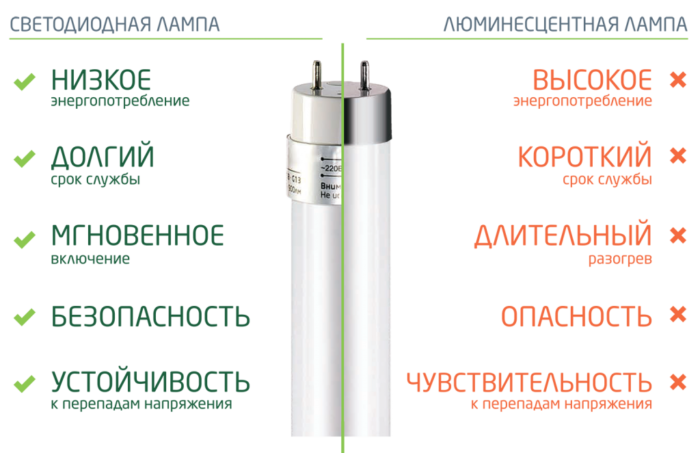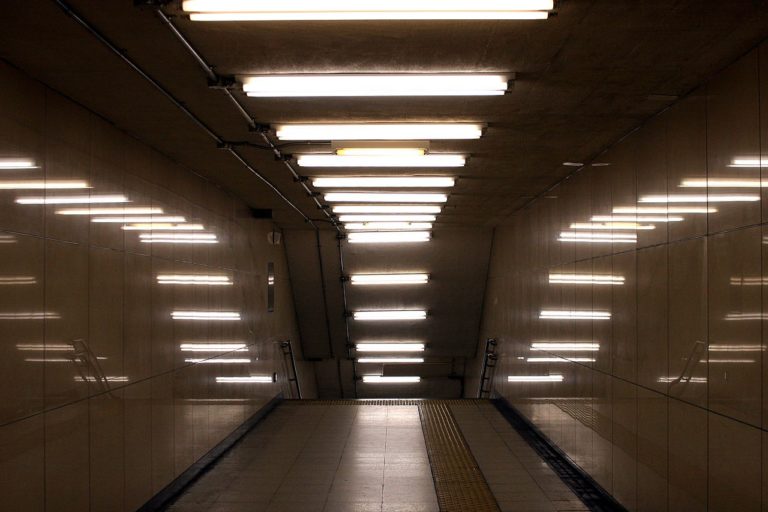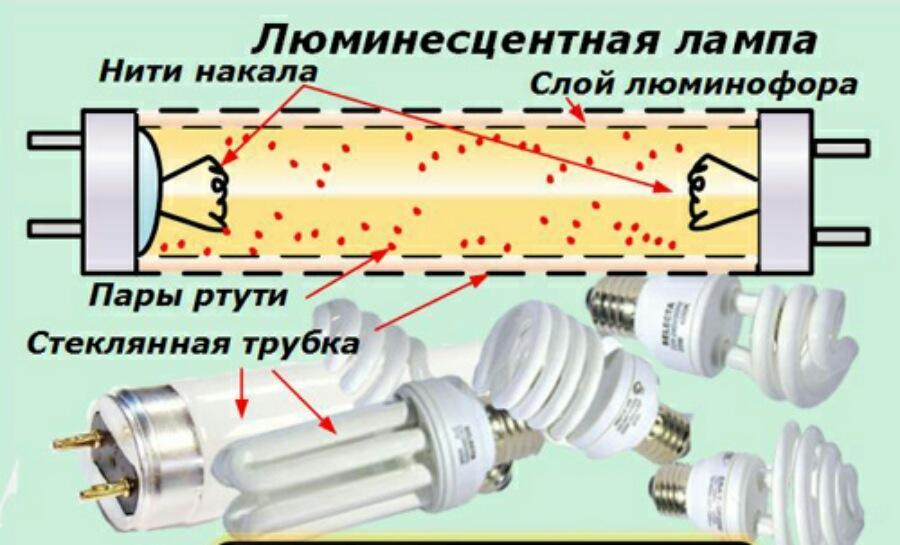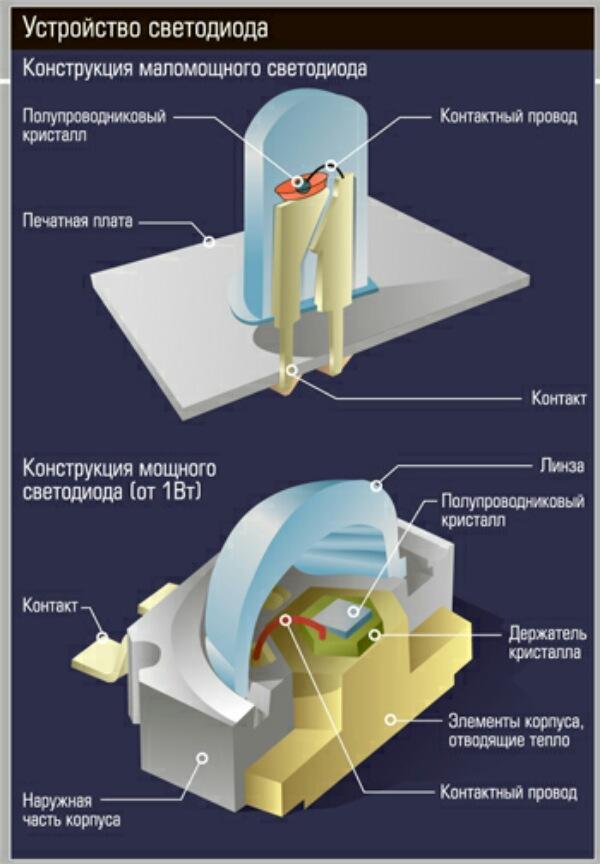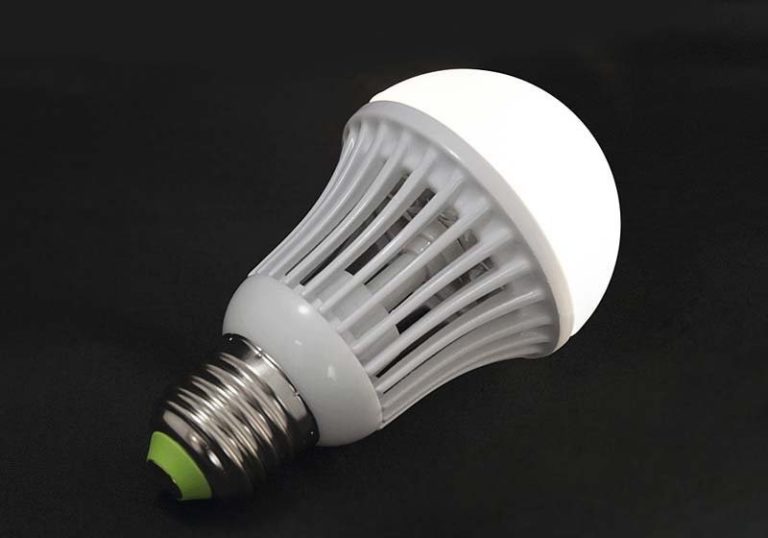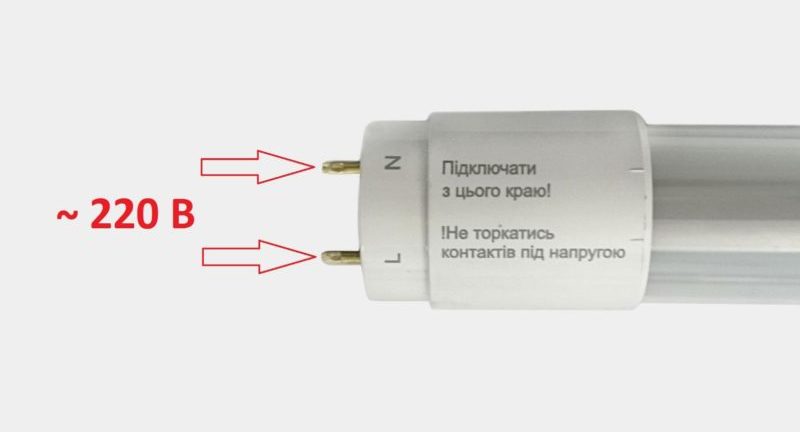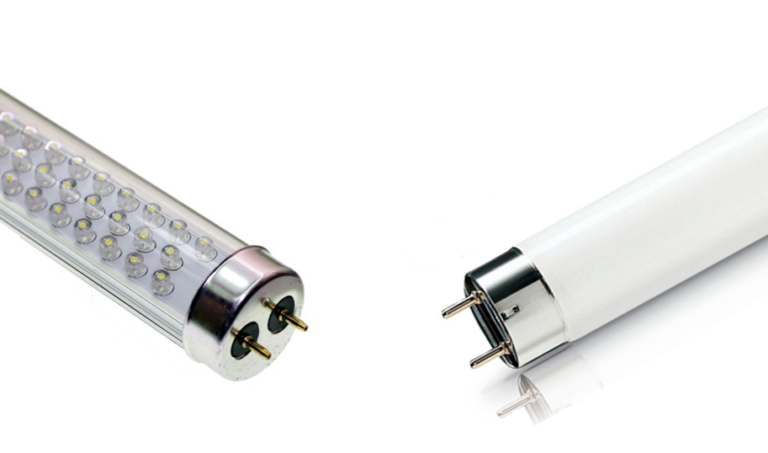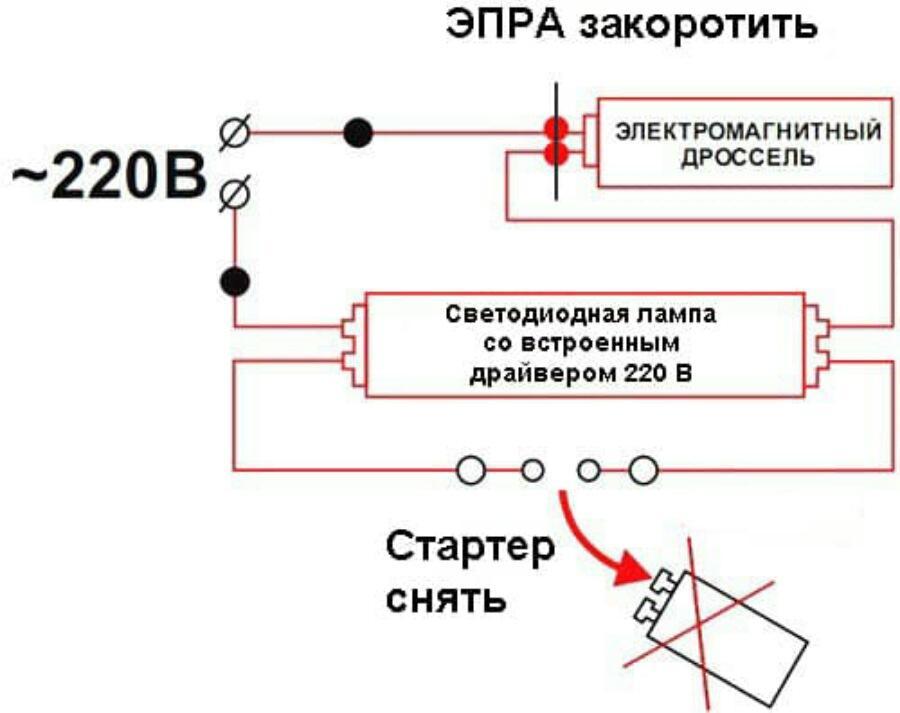How to connect an LED bulb instead of a fluorescent bulb
Is it worth it to change fluorescent bulbs on the LED-lamps
The lighting market is massively filled with LED lighting fixtures of various formats, with characteristics attractive to those who like to save money. Given the increase in electricity tariffs, many manufacturers speculate on this problem, promoting their products as eternal, efficient and economical at the same time. In reality, things are not as rosy as they are described by marketers and the replacement of fluorescent lamps LED lamps will be profitable if you buy very expensive devices. Ascribed to the properties of LEDs correspond to the products of brand manufacturers of lighting fixtures. As a rule, the cost of their products is off the charts, negating any benefit from the conversion. Here is how, in the understanding of the LED-element manufacturers look comparative characteristics of their products with fluorescent lamps.
By and large, with a certain combination of devices, the characteristic presented is true, as there are bad fluorescent and good LED lamps. The key factor determining the effectiveness of a particular lamp is the price. But if you take the average range, things look a little different.
Is there any savings
According to the specifications of specific models of lamps from one manufacturer it is possible to calculate the cost of lamp performance over a certain period of time. In the case of companies Navigator and Osram, the table of calculations is as follows.
Based on the calculations, the most expensive of the presented devices - incandescent and halogen lamps. The cost of LEDs is comparable to gas-discharge economical lamps, but fluorescent lights, even with a capacity of 36 watts against 8 watts of LED-lamps, are cheaper. LED lamps begin to pay for themselves only after 4,000 hours, and become more profitable than energy-saving lamps after 25,000 hours of operation, as can be seen in the graph.
To be fair, it is worth noting that the life of brand LED elements in 50,000 hours allows them to focus on the long term, while fluorescent have to be replaced after 20,000-30,000 hours.
Differences in operation
While T8 light sources may look similar, fluorescent and LED lamps operate on different principles. A fluorescent light source is a glass bulb filled with mercury vapor. When a high-frequency voltage is applied to the electrodes, the mercury ions emit light in the ultraviolet range. To convert the ultraviolet glow into a spectrum visible to the eye, a special phosphor is sprayed on the inside of the glass bulb that glows under UV light in the visible range. Hard ultraviolet light is kept out. A choke with a starter is required to start the discharge.
LED cell glows due to the passage of low-power current through the crystal in the manufacturer's specified range of luminescence, mostly in cool tones of 5000 to 10,000 Kelvin. To run the LED lamp from a 220 V mains supply, a driver or ECG - An electronic control gear.
The advantage of LED lighting in luminaires
LED lamps are universally installed instead of fluorescent lamps, because, other things being equal, win in some respects:
- environmental friendliness - Fluorescent lamps contain toxic mercury. In this regard, the disposal of gas discharge in the usual way is prohibited. The regulation prescribes the surrender of spent bulbs to a special company, with disposal costs from 8 rubles per unit. LED-cell can simply be thrown in a container for municipal solid waste, when the design is destroyed, it poses no danger to the environment;
- light output and performance - Although most manufacturers claim that the efficiency of LED lamps is 90%. In reality, this figure is close to 40%. Taking into account the power loss in the driver, the efficiency of the LED lamp is reduced to 130 lumens per watt, which is 25-30%. However, even with all the deductions, fluorescent fixtures lose even here, as their maximum efficiency does not exceed 80 lumens/Watt - 20%. Given the lack of developments in this direction, no improvement in gas discharge performance is expected in the future;
- ergonomics - the operation of fluorescent lamps and ballasts is accompanied by humming, crackling, radio and audio interference for nearby electrical appliances. In addition, the coefficient of light pulsation of gas discharge at the time of their launch exceeds 20% against 5-10% for LED lights;
- stability - at voltage spikes in the network, especially a drop of up to 180 volts fluorescent lights blink or go out. Cheap Chinese LED fixtures with a diode bridge instead of a voltage regulator also do not work correctly. But using high-frequency stabilizers in the circuit solves this problem;
- degradation - the phosphor eventually crumbles and burns out, reducing the light output and shifting the discharge spectrum into the dangerous ultraviolet range.
The main disadvantage of LED lamps is the price, still higher than its gas discharge counterparts. The increase in affordability comes at the expense of simplified circuits and the use of low-efficiency parts, which negates some of the benefit of converting to a new type of lighting instead of the outdated fluorescent tubes. Chinese products often don't last as long as incandescent bulbs, very hot, burn out, so their operation is even more expensive due to the forced replacement of the light source after it breaks.
Conversion procedure
If the replacement of incandescent or economy lamp with E27, E14 socket to LED lamp of the same format and dimensions is not difficult, the installation of T8 format lamps with G13 socket already requires some adjustments in the device of the original lamp.
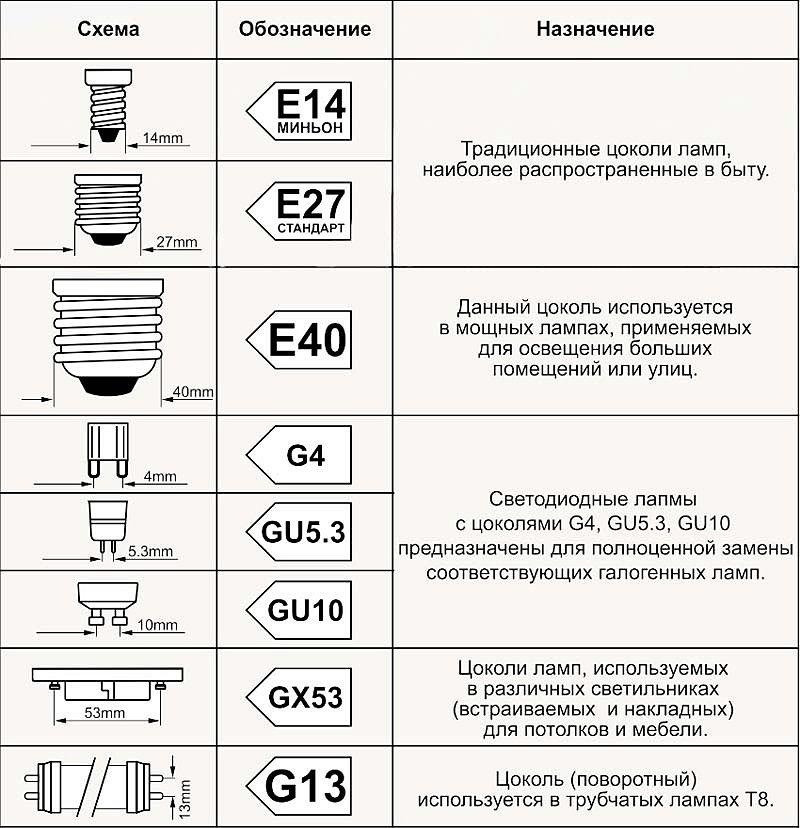
An electronic ballast or choke with a starter is used to start the gas discharge, and these elements should be excluded from the circuit.
How to install an LED lamp instead of a day lamp directly
The wiring diagram of a tubular LED lamp has no additional elements, because the driver for starting is already built into its body.
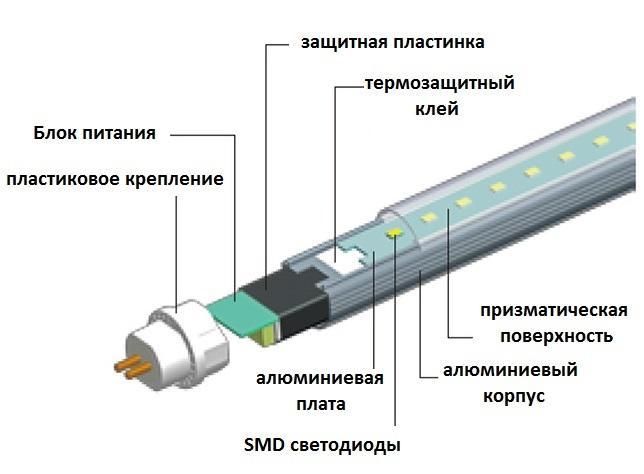
The format of the LED tube T8 corresponds to a daylight bulb 600, 900, 1200, 1500 mm long. Depending on the manufacturer, there are two types of their connection:
- Phase and zero are fed to the two contacts on one side.
- Phase and zero are on opposite ends of the tube.
More often the second type of device is found. In this case, if the gas discharge tube has a filament between the two pins to preheat the mercury vapor before starting, in the LED tube of the second type the contacts are connected with a jumper. In the first type of tube, the jumpers on the unused side have a mounting function. To convert a daylight luminaire to a new type of light source it is necessary:
- Disconnect the power supply at the circuit breaker.
- Remove the luminaire body.
- Remove the old glass bulbs.
- Remove the protective cover to access the internal circuitry.
- Remove the choke, starter, ECG by disconnecting them from the wires or bite the wires with wire cutters. These design elements will not be needed.
- Remove all unnecessary wires, leaving only two that go to the sockets on the body.
- Connect the opposite sockets directly to phase and zero.
- Connect the outgoing two wires to the plug, install the LED tubes and do a test run.
On the G13 socket you can install a jumper between the paired pins, but it is not necessary, because the presence of a jumper on the lamp itself guarantees contact when voltage is applied to one of the pins. If the socket is installed so that the pins are vertical, and the design of the LED tube has no swivel mechanism, the socket must be moved to a horizontal position. To do this, you will have to drill mounting holes for the bolts and screw the socket in a different position. If several tubes are installed in the lamp, the lamps are also connected directly in parallel.
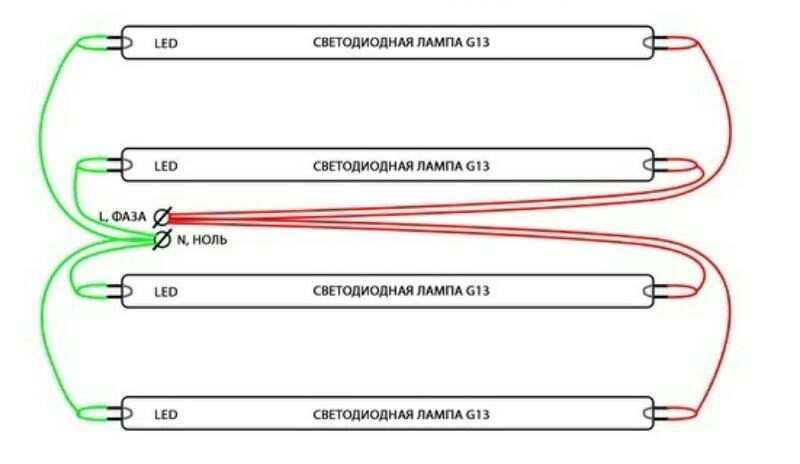
It is desirable to lead a separate pair of wires to each pair of cartridges. The choke or ECG can not be removed, the main thing is to disconnect them from the circuit, but their weight significantly weighs the design, and in the future they can be useful for the repair of other devices. It is possible to retrofit by removing the starter and disconnecting the choke and installing a jumper instead of the ECG as shown.
A detailed overview of the luminaire modernization is presented in the video:
